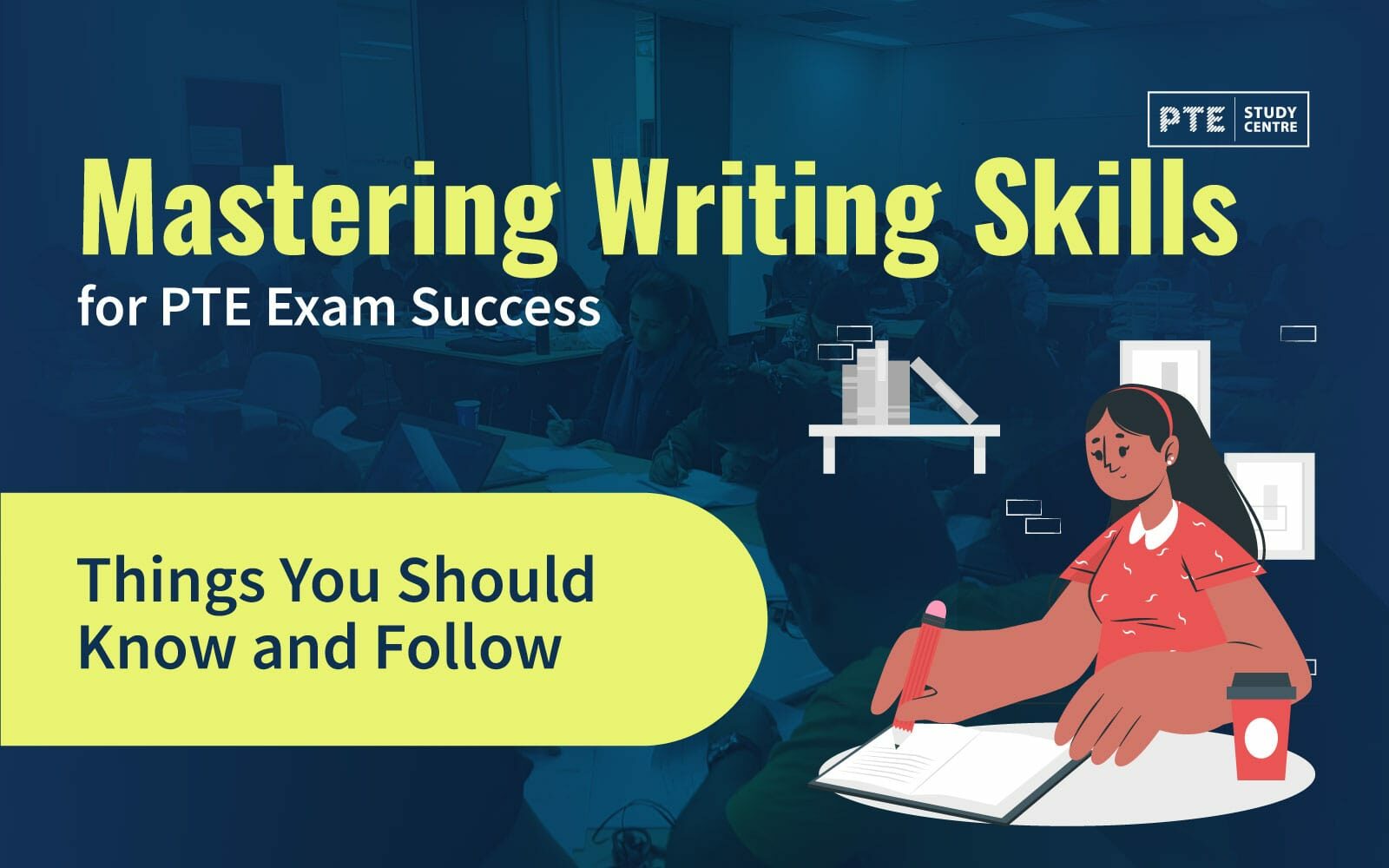The Pearson Test of English (PTE) is a widely recognized English proficiency test that assesses your language skills in various areas, including writing. Developing strong writing skills is crucial for achieving a high score in the PTE exam. In this blog, we will explore effective strategies and tips to enhance your writing abilities and maximize your chances of success.
To excel in the PTE Writing section, it’s essential to familiarize yourself with the test format. The writing section consists of two tasks: Summarize Written Text and Write Essay. Take the time to understand the specific requirements, word limits, and assessment criteria for each task.
Improving your writing skills starts with building a strong foundation in grammar, vocabulary, and sentence structure. Enhance your knowledge of English grammar rules, expand your vocabulary through regular reading, and practice constructing well-formed sentences. Online resources, grammar books, and vocabulary-building exercises can be valuable tools for self-study.
Reading extensively exposes you to a diverse range of writing styles, vocabulary, and ideas. Engage with various genres such as news articles, opinion pieces, essays, and academic journals. Pay attention to the organization of ideas, sentence structure, and use of cohesive devices. Reading regularly helps you internalize good writing practices and improves your overall language proficiency.

Effective time management is crucial during the PTE Writing section. The tasks are time-limited, so practice writing within the given time constraints. Set a timer and allocate specific time for planning, writing, and reviewing your responses. This will help you develop the ability to generate ideas quickly and organize them effectively within the given timeframe.

Before starting each writing task, carefully read and understand the prompt or question. Analyze the key points, identify the purpose, and consider the intended audience. This understanding will enable you to tailor your response accordingly, addressing all aspects of the task and demonstrating a clear understanding of the topic.

Spend a few minutes planning and outlining your ideas before you start writing. Jot down the main points or arguments you want to include and consider the logical flow of your response. An organized and well-structured essay or summary will be more coherent and easier to read, increasing your chances of scoring well.

In your writing, aim for clarity and cohesion. Use simple, concise sentences to express your ideas clearly. Ensure that your paragraphs have a logical progression and that your ideas are linked together using appropriate transitional words and phrases. Clear and cohesive writing demonstrates your ability to communicate effectively.
Demonstrate your language proficiency by incorporating a range of vocabulary and sentence structures in your writing. Avoid repetitive language and explore synonyms, idiomatic expressions, and advanced vocabulary to convey your ideas effectively. Additionally, vary your sentence structures to create interest and showcase your language skills.

Always allocate time at the end to review, proofread, and edit your writing. Check for grammatical errors, spelling mistakes, and punctuation errors. Pay attention to the overall coherence and cohesion of your response. Edit any awkwardly worded sentences or unclear passages to enhance the clarity and readability of your writing.

Regular practice is essential to improve your writing skills. Write practice essays and summaries, and seek feedback from qualified individuals or join writing groups where you can exchange ideas and receive constructive criticism. Incorporate the feedback into your subsequent writing attempts to refine your skills.
Developing strong writing skills is a key component of achieving success in the PTE exam. By following these strategies and tips, you can enhance your writing abilities, effectively express your ideas, and maximize your chances of obtaining a high score. Remember, consistent practice, thorough preparation, and a focus on clarity and coherence will set you on the path to PTE exam success.








